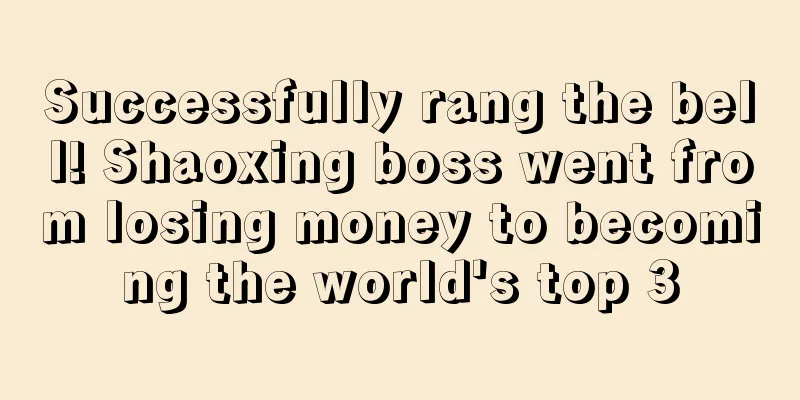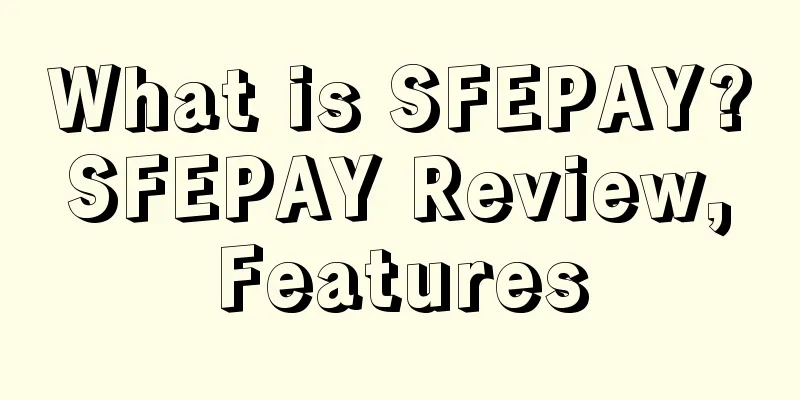A wave of sellers received review warnings, and Amazon started scanning their accounts!

|
In the face of a major industry earthquake, no one can remain immune.
While other sellers were enjoying the huge sales, many of them also received review warning letters from Amazon.
A wave of sellers received evaluation warning letters
Someone counted the big-selling stores that were closed recently and found that there were as many as 12 of them, involving more than 40 brands, most of which were 3C products.
As the saying goes, "When a whale falls, all things come to life." Many people say that when the top sellers' stores are closed, the orders will fall to other sellers of the same category, and the mid-level sellers will be the first to get the meat.
However, when it comes to the platform, there is only a distinction between violations and non-violations, and there is no distinction between big sales and small sales.
As we all know, the reason for the collapse of these big sellers is mostly due to "fake reviews". Therefore, before the sellers can enjoy the benefits, they have already received warning letters from Amazon.
The warning letter reads as follows :
As can be seen from the above figure, the seller’s account is at risk of being deactivated for reasons including violating these Amazon seller codes of conduct : 1. Influencing customer ratings, feedback, and reviews; 2. Manipulating sales rankings; 3. Artificially increasing network traffic.
At the same time, it also emphasized the behaviors that Amazon prohibits : 1. Hiring a third party to try to improve ASIN rankings and/or reviews; 2. Sending packages to addresses that the recipient did not order or did not want to receive; 3. Requesting or accepting false or fraudulent orders; 4. Placing orders for your own products; 5. Providing compensation to buyers who purchase your products (including claim codes).
Every word and sentence is short of directly pointing out that the seller is brushing reviews and placing fake orders.
The sellers who witnessed the tragic situation of the above-mentioned big sellers panicked :
"——Recently, several stores have received warning letters one after another. These are the first time they have received them. Is a new wave of number sweeping coming? ——I received three warning letters this month, and I also received this one on June 12. I was a little panicked. ——I received it too. They must have caught something wrong. I launched a new product at the beginning of this month and encountered a fraudulent agent. There were a lot of order cancellations and refunds after placing an order. The last review was deleted a month ago. Now I don’t dare to test it anymore.”
It is said that Amazon likes to settle accounts after the event. A seller who also received a warning letter felt this deeply. He received a warning letter 8 months after the evaluation and warned: "If you reach out, you will be caught. If you don't catch me today, you will be caught tomorrow. If you don't catch me tomorrow, you will be caught the day after tomorrow."
In fact, some sellers received similar notices in May this year.
Some sellers said that the warning letter they received clearly stated that they had used review cards and required them to provide all ASINs containing review cards within three working days.
UK asks Amazon to crack down on fake reviews on its platform
Amazon's strong crackdown on fake reviews this time is inseparable from the pressure it is under.
British regulators said on Friday they were investigating Amazon over concerns the online giant was not doing enough to stop fake reviews of products and services on its platform.
“We are concerned that millions of online shoppers could be misled by reading fake reviews and then spending money based on those recommendations,” the regulator’s chief executive Andrea Coscelli said in a press statement.
“Similarly, it would be unfair if some businesses faked five-star reviews to highlight their products or services while law-abiding businesses lost out.”
The regulator said it had not yet determined whether Amazon had violated consumer protection laws. If so, it could require it to change the way it handles fake reviews or take it to court.
“It’s important that these technology platforms are held accountable, and we stand ready to take action if we find they are not doing enough.”
Amazon said it would cooperate with British regulators in their investigation.
"To earn the trust of our customers, we invest significant resources to prevent false or incentivized reviews from appearing in our stores," Amazon said in its statement. The company said it works to ensure reviews "accurately reflect customers' experiences with products," and noted that it has previously blocked 200 million fake reviews.
The British regulator said its initial investigation, which began last year, raised concerns about whether Amazon had done enough to detect false and misleading reviews and remove them quickly from its site.
For example, when the same users review the same unrelated products at around the same time, especially when the source of the positive review suggests that the reviewer was paid or incentivized to write it.
In addition, the regulator said it was concerned that Amazon's systems "fail to adequately prevent and deter some sellers from manipulating product listings, for example, by cherry-picking positive reviews of other products."
In fact, a report published earlier this year by UK consumer group Which revealed an entire industry dedicated to providing fake reviews to sellers in exchange for money or products.
It found one company had 62,000 reviewers worldwide and charged sellers on the Amazon marketplace about £13 for a review. It also ran bulk deals, where sellers could get 50 reviews for £620 or 1,000 for £8,000.
Which called the UK regulator's investigation a "positive step".
“Regulators must now act swiftly to determine whether these companies have violated the law,” said Rocio Concha, Which’s head of policy and advocacy.
“This should prompt Amazon to finally take the necessary steps to protect users from the growing wave of fake reviews on its platform, and regulators must be prepared to take strong enforcement action if they don’t.”
Sellers: Rebuild your operational awareness and get fake orders out of your mind
"Has another big seller's store been closed? It looks like we have to have another meeting tomorrow. Every time a big seller's store is closed, our boss has to organize a meeting." An employee of a cross-border e-commerce company said when asking other sellers.
The sword has fallen, the cross-border circle is in a state of panic, and every seller is in danger.
If the big sellers are far away from the sellers, and even if something happens to them, they will just watch and watch, then things happening around them will have to make people alert.
A seller said that because of the praise cards, several of his good friends' companies had their links dead at best, or their stores were judged to be closed due to second swipes, so he really didn't dare to put up the cards anymore.
There is a saying in the cross-border circle that I believe everyone has heard : "If you fake orders, you will die, and if you don't fake orders, you will die."
Obviously, Amazon is now taking a "strict investigation and severe punishment" attitude towards fake reviews . So sellers began to think: Now that we can't fake orders and don't give good review cards, how should we operate, especially for new products?
“After all, Amazon has eliminated too many sellers in the past two months, many of which are benchmark companies that our boutique company has always been optimistic about,” lamented a seller.
Therefore, regarding future operational issues, many sellers said that they must first rebuild their operational awareness and completely eradicate the idea of false orders from their minds.
In the long run, we still need to comply with regulations and carry out refined operations, diversify marketing channels, deepen the supply chain starting from product micro-innovation, and adhere to a user-oriented approach. Review Warning Amazon Scan |
<<: After the account is blocked, the seller will ask: Is your account still there?
>>: No bottom line! The boss's employees actually sold company products during work hours
Recommend
The maximum subsidy is 11 million! The country’s first RCEP cross-border e-commerce special policy is here!
On the morning of March 30, Guangzhou officially ...
What is 新ECルーツ? 新ECルーツReview, Features
新ECルーツis a tool that allows you to accurately coll...
Alibaba upgrades "diversified governance", Zhang Yong promotes "agile organization" to increase domestic demand and globalization strategy
On December 6, Alibaba Chairman and CEO Zhang Yon...
The Children's Place, a well-known American children's clothing brand, announced that it will enter the SHEIN platform
On October 31 , The Children's Place, a well-...
Net increase of 2.5 billion euros! Digitec, the largest e-commerce platform in Switzerland, remains strong
Digite c Galaxus , a subsidiary of Migros , relea...
The number of sellers on Brazilian e-commerce platform Magalu has reached 100,000!
It is reported that Magalu, a Brazilian giant ret...
What is Feedbackwhiz
Feedbackwhiz is an Amazon ERP software that helps...
What is InfiPlex? InfiPlex Review, Features
<span data-docs-delta="[[20,{"gallery"...
American home furnishing retailer HomeGoods enters the e-commerce field!
HomeGoods was founded in 1992 and currently has 8...
What is Meou Cross-border? Meou Cross-border Review, Features
Meiou Cross-border is committed to providing prof...
What is TrueMoney Wallet? TrueMoney Wallet Review, Features
TrueMoney Wallet is Thailand's leading e-walle...
As social networks enter the 3.0 era, can Snapchat create a new myth?
SNS ' decade-long career as the leader of Web...
Good news! eBay UK fixed-value fees are reduced by two-thirds
Recently, eBay issued an announcement stating tha...
What is Harbin E-Trade Technology Co., Ltd.? Harbin E-Trade Technology Co., Ltd. Review, Features
Harbin Russia Express Technology and Trade Co., L...
Australia Post increases its shipping capacity to meet the winter online shopping peak, and Etsy platform searches for thick rings increase by 474%
Australia Post is increasing its delivery capacit...









